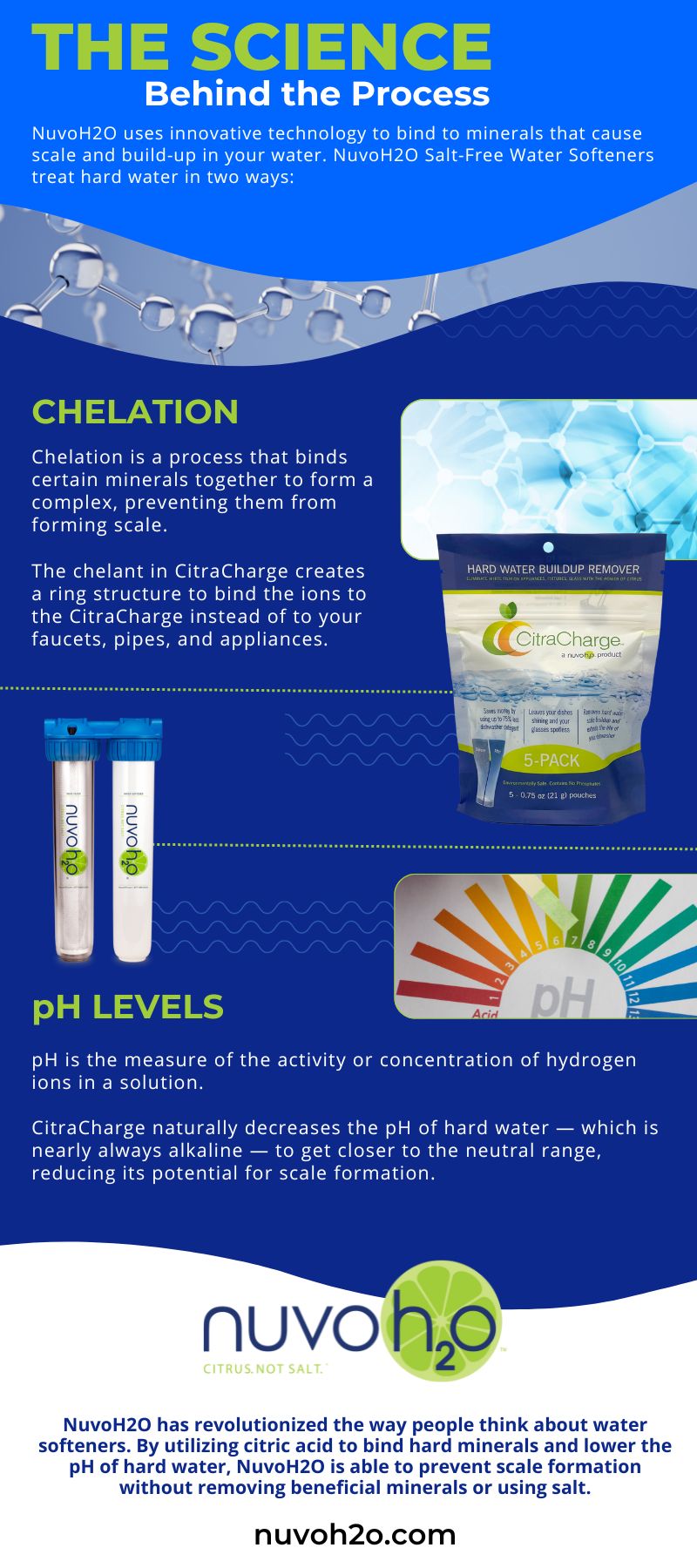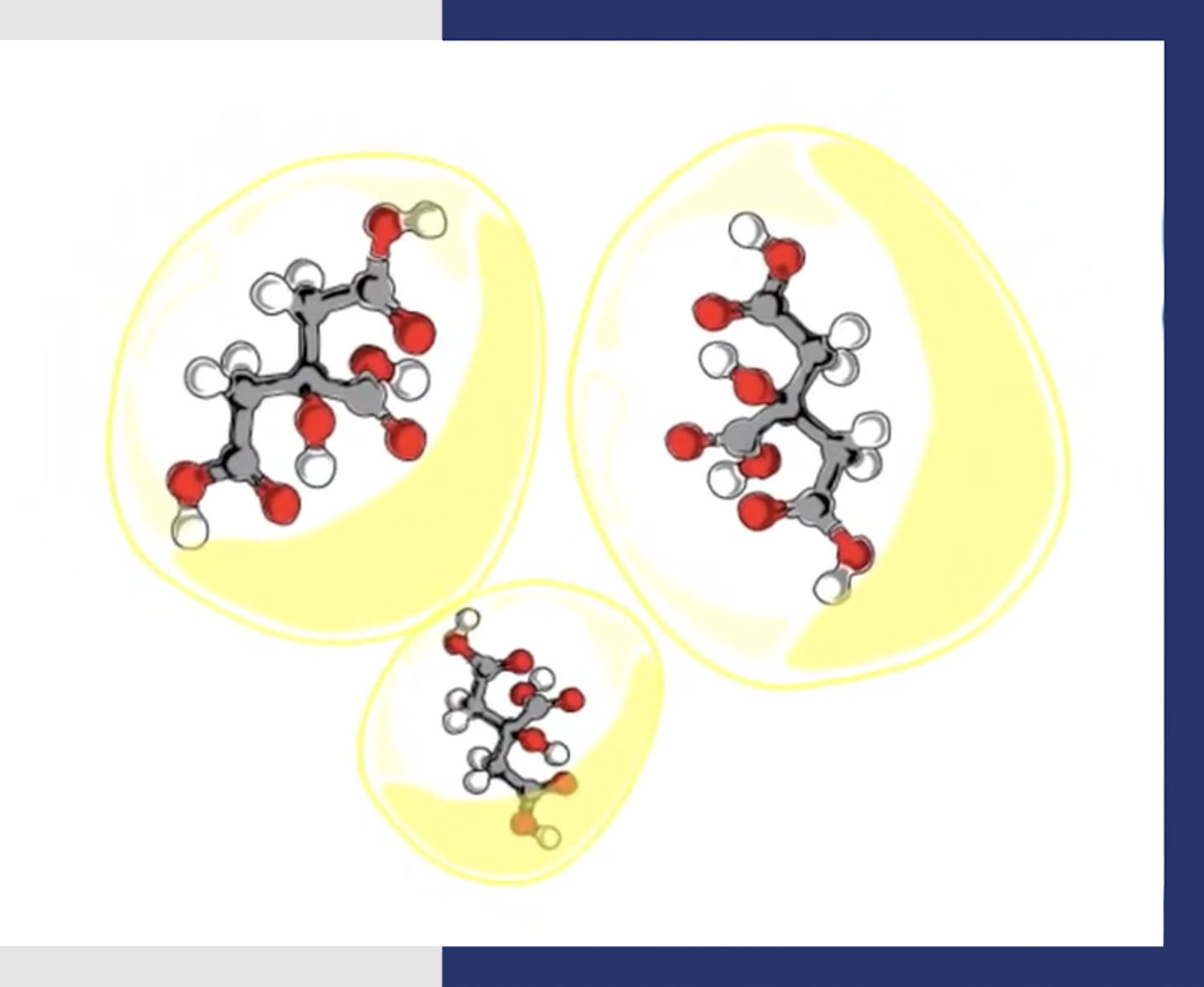When it comes to water softener systems, there are many options available. Some of the systems, such as salt-based water softeners, work by removing beneficial minerals from the water. On the other hand, salt-free systems like NuvoH2O use innovative technology to bind to minerals that cause scale and build-up from the water without removing them. Depending on your specific needs and goals, it’s important to choose the right water-softening system for your home. Our team at NuvoH2O is here to explain the science behind our process. Learn more about the science behind NuvoH2O and find effective, innovative salt-free water softeners today!
Hard water is a prevalent water quality issue that affects countless households, and understanding its characteristics and effects is crucial. Hard water is defined by its high mineral content, primarily consisting of calcium and magnesium ions that it acquires as it flows through underground rock formations. This mineral-rich water, while not harmful to your health, can have significant consequences for your daily life and your home.
The effects of hard water become evident through a range of telltale signs. The presence of limescale, those white, chalky deposits on fixtures and appliances, is a common and frustrating indicator. These deposits can affect not only the aesthetics of your plumbing but also the efficiency of water-using appliances like water heaters and dishwashers. Additionally, hard water can cause soap scum to accumulate on your shower tiles and glass, making cleaning a constant battle. In the laundry room, you might notice that clothes feel stiff and colors fade faster. If you’re wondering whether your water is hard, our team at NuvoH2O can help.
We can determine whether hard water is present in your home, and if so, we offer a range of hard water solutions to soften your water and improve your overall water quality. Get in touch with us to learn more or to find salt-free water softeners today!
NuvoH2O Water Softeners treat hard water in two ways:
First, instead of removing beneficial minerals like old-fashioned salt softeners, the NuvoH2O system binds and isolates the hard mineral ions with a process known as chelation. Once bound to CitraCharge®, NuvoH2O’s binding agent, the mineral cannot form scale.
Second, NuvoH2O also lowers the measured pH of the water to reduce or eliminate scale formation. Reduced pH makes citrate ions more effective in binding minerals, so they can’t form water scale.
Typically, salt-based water softeners use ion exchange to bind to the hard minerals in the water supply. This process requires regular maintenance of the brine tank and large amounts of salt in order to regenerate the resin bed. Salt-based systems also require a significant amount of water for regeneration. On the other hand, NuvoH2O systems do not require any salt or electricity and use significantly less water for regeneration.

CitraCharge, the proprietary formula in NuvoH2O water softeners, uses a process known as chelation to bind and stabilize mineral ions naturally found in hard water. The chelant in CitraCharge creates a ring structure to bind the ions to the CitraCharge instead of to your faucets, pipes, and appliances. Citric acid water softeners like NuvoH2O are much more efficient and effective than salt-based softeners due to their ability to bind and isolate mineral ions from forming scale.
Our CitraCharge formula stops the mineral ions from causing hard water problems by making the typically troublesome minerals stay suspended in the water, so instead of attaching to the metal in the pipes, the water passes through. Since they’re bound, those minerals also freely wash away from your body, hair, dishes, pipes, fixtures, and appliances.


A primary ingredient in CitraCharge is an FDA-approved citric acid. Citric acid is a weak organic acid that occurs naturally in fruits and vegetables. It is a widely used natural chelant and preservative. CitraCharge naturally decreases the pH of hard water — which is nearly always alkaline — to get closer to the neutral range, reducing its potential for scale formation.
pH is one of the key factors determining whether or not water scale will form. pH is the measure of the activity or concentration of hydrogen ions in a solution. Pure water has a pH very close to 7 at room temperature. Solutions with a pH less than 7 are said to be acidic with the acidity increasing as the pH decreases. Solutions with a pH greater than 7 are basic or alkaline. Get in touch with NuvoH2O to learn more about how our salt-free water softeners affect pH and reduce scaling.
Shop Now
NuvoH2O has revolutionized the way people think about water softeners by providing unmatched hard water treatment. By utilizing citric acid to bind hard minerals and lower the pH of hard water, NuvoH2O is able to prevent scale formation without removing beneficial minerals or using salt. This is a more efficient and eco-friendly alternative to traditional salt-based water softeners, allowing you to enjoy soft water at home without the worry of hard water buildup. If you’re questioning whether you have hard water or limescale buildup in your home, get in touch with NuvoH2O today to learn more about how our citric acid-based systems can benefit you and your family. We look forward to helping you make the most of your home's water.
Receive access to exclusive sales, promotions, and design ideas.